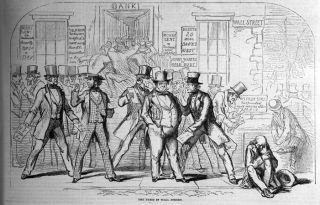Spirituality
The Spiritual Crisis Underlying American Politics
Awakening to Our Interconnectedness
Posted November 18, 2014
America is a very religious nation. But sadly, we’re not a very spiritual one. Mother Teresa’s disquieting words resonate throughout the land:
"You in the West have the spiritually poorest of the poor. . . . I find it easy to give a plate of rice to a hungry person . . . but to console or to remove the bitterness, anger, and loneliness that comes from being spiritually deprived, that takes a long time."

While it is obvious that America is reeling from a chronic political crisis, it may not be apparent how this is fueled by an underlying spiritual crisis. Disconnected from our humanity and spiritual roots, we may cling to a life whose sole purpose is to pursue our own private happiness without regard for our collective well-being.
Vulnerability as a Weakness or Strength?
Many of us grow up in families where vulnerability is seen as a weakness. Repeatedly shamed and criticed for having fears and showing tears, we learn to keep our feelings and vulnerabilities to ourselves. We shut down emotionally. As a consequence of not welcoming our feelings, we quickly look away from those who are suffering or the environmental havoc we’re creating. We pursue our careers or dreams of being “successful” without realizing how our own lives are interconnected with the ives of others and with life itself.
When we fail to embrace our own vulnerability, we judge people who are suffering and struggling. We may see people who are unemployed or poor as weak, which rationalizes away any empathy toward their plight.
Becoming numb to our own pain through assorted addictions and today’s speed of life, we don’t register the misery around us. If some poor souls are dying because they can’t afford health care, it’s not my problem. A prevalent political ideology in today’s America is a decidedly narcissisitc one — we’re all in it for ourselves.
Awaking to Our Interconnectedness
The great world religions encourage us to love one another. What is love if not caring for the well-being of our fellow humans — allowing ourselves to be responsive to the feelings and needs of those around us? Spirituality derives from the word meaning “breath.” We notice what lives and breathes outside of ourselves. The recognition that our very nature is to be interdependent with the life around us is antithetical to the American myth of self-sufficiency, a myth that is destroying us.
Spirituality is antithetical to celebrating the isolated human ego—living in self-comforting ideologies that shut down our empathy. Spirituality is about living in our hearts and bodies — recognizing our sacred interconnectedness with others and our natural environment.
Mother Teresa invites us to look courageously at our attitude of isolation that keeps us disconnected from each other. When our longing for love and connection goes unmet, it atrophies. Reeling from attachment wounds (disruptions of trust and unhealed betrayals), we pursue what doesn’t bring fulfillment — things, power, wealth—unitl we reach a spiritual crisis or lie exhausted on our deathbed, wondering, “Did I miss something?”
As we live with a more open, accessible heart, we find that the greatest joy and satisfaction come from contributing to the well-being of others and living for something larger than ourselves and our immediate family. It’s nice to have a nifty car, nice home, and comfortable surroundings, but a deeper fulfillment awaits us. Creating social infrastructures that supports people in meeting their basic physical and emotional needs can lower the frantic temperature of fear that is infecting our communities and wreaking havoc in our world.
Do we want to build a society that encourages an accumulation of power and resources for ourselves and perpetuates a deepening rift between the rich and poor? Spiritual teachers such as Mother Teresa invite us to live with a porous heart, poised to touch and be touched by others. Creating a world that is more interconnected is a good idea not simply because it is ethically sound. The deepest human fulfillment lies in co-constructing such a world.
The wise Greek philosopher Aristotle proposed a system in which the wealthiest person could only be a certain number of times richer than the poorest, thus giving affluent people an incentive to lift up the bottom. This social contract, or something similar, would create a society that is wisely geared toward reducing the fears and wants that lead to a variety of social ills, while giving more people an opportunity to be happy. Politicians who cling to an isolated, constricted vision may try to manipulate the populace by labeling this as some kind of horrifying socialism. In reality, a social policy rooted in human caring is a path toward creating a civilization embedded in longstanding spiritual tradition.
© John Amodeo




